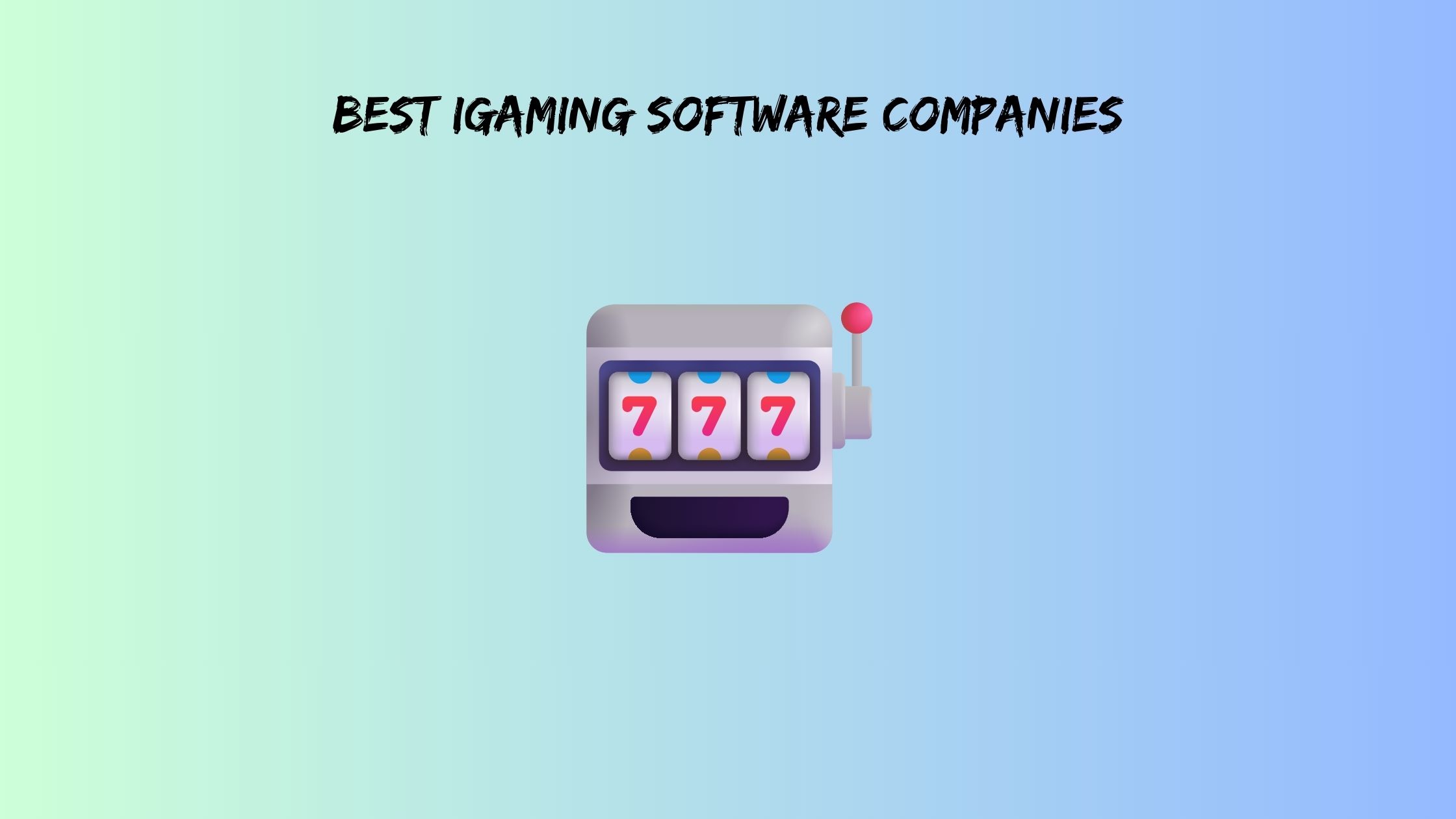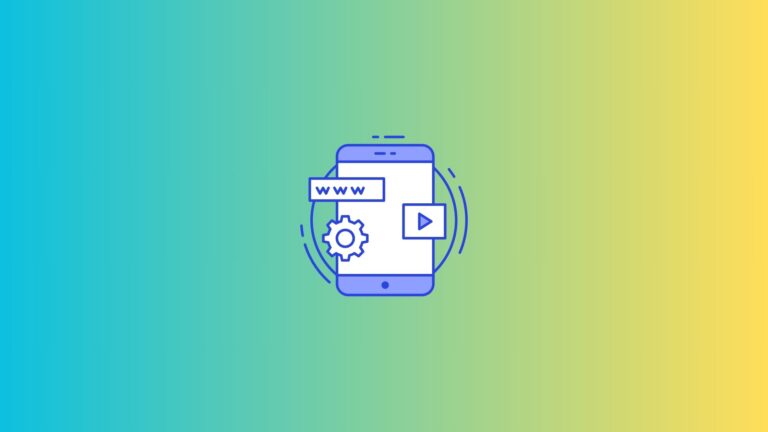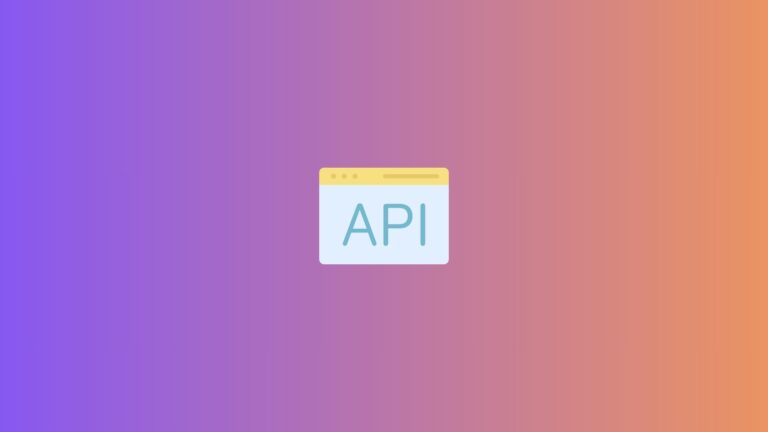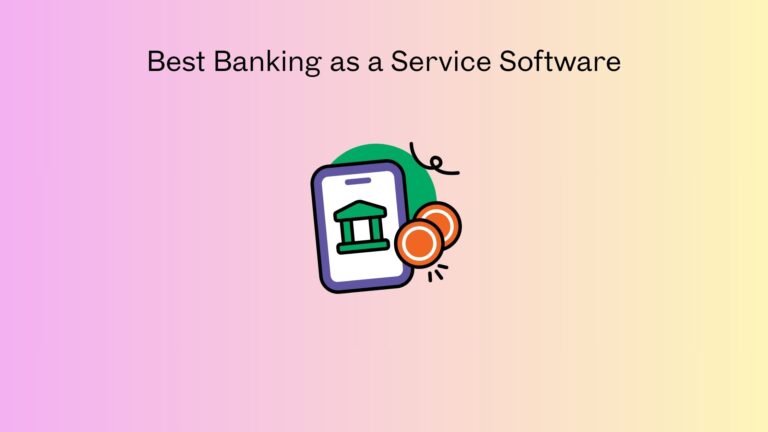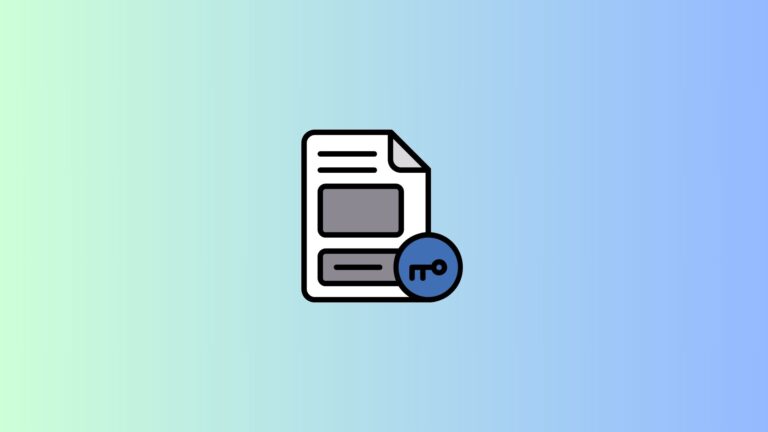Best iGaming Software Companies That Are Revolutionizing Online Betting Platforms
The online betting world is growing like crazy. By 2030, the market will hit $165 billion, and it’s not slowing down. But here’s the thing: most operators think they can just grab any software and call it a day. Wrong. The real winners? They’re using best iGaming software companies who actually understand how to keep players coming back.
We’re going to walk you through the companies that aren’t just playing the game. They’re changing it entirely. Some are pushing graphics to cinema levels. Others are cracking the code on how to make players stick around 45% longer. A few are even pioneering how betting works across your phone, computer, and yes, even physical casinos.
Let’s dig into what actually separates the software that just works from the software that makes money move.
What Makes iGaming Software Stand Out From the Crowd?
Before we name names, understand what “revolutionary” actually means in this space. Most people think it’s just about having more games. That’s like saying a car is revolutionary because it has cup holders.
Real innovation happens when software solves actual operator problems. Think about it: Do you have players across 15 different countries? Your software needs to handle 30+ different regulations without slowing down. Are you trying to keep a player on your platform for more than 20 minutes? You need intelligent algorithms that adjust game pace and recommendations in real-time.
The software companies we’re highlighting all solve at least one major headache that operators face daily. Some handle the technical nightmare of keeping the lights on during 100,000 simultaneous players. Others figure out how to make a player’s experience feel personalized, even though you’ve never met them.
The shift isn’t just from bad to good software. It’s from static platforms that barely function to adaptive systems that predict what a player wants before they know it themselves.
Also read: Create Official Email ID Free
1. Playtech
Playtech runs about 500 betting operations worldwide. That’s not a coincidence. This company essentially owns the enterprise end of the market for a reason.
What makes them revolutionary? Playtech built their own trading floor technology called Playtech TradeTech. Most software companies license odds from a third party. Playtech? They generate them in-house. That means operators get better odds management, fewer errors, and a competitive edge competitors can’t match.
Their platform handles 6,000+ games across sports betting, casino, and poker. But the real magic is underneath. They launched a cloud-based system in 2023 that guarantees 99.9% uptime. We’re talking about a platform that never stops, even when millions of people are betting simultaneously.
Playtech operates in 30+ regulated markets. If you’re an operator trying to expand across Europe, Asia, or the Americas, this software handles the compliance chaos. Their white-label solutions mean you can rebrand without rebuilding everything from scratch.
The differentiation here is simple: Playtech is the only major iGaming software provider with in-house sportsbook trading technology. Competitors license this tech. They own it. That saves operators money and headaches every single day.
2. NetEnt
NetEnt doesn’t just make games. They engineer experiences that keep players engaged. Their portfolio includes 500+ titles refined over two decades of watching how people actually play.
Here’s their secret weapon: the NetEnt Studio Labs. When a major operator signs up, NetEnt doesn’t hand them a catalog and call it done. They build custom games designed specifically for that operator’s player base. Think of it like tailored betting experiences instead of off-the-rack software.
Their mobile optimization is honestly in a league of its own. 99% of their games use their TouchOptimized technology, which means the experience on a phone feels native, not like a desktop game squeezed onto a small screen. Mobile players spend differently than desktop players, and NetEnt builds that reality into every game.
Most operators see a 23-30% lift in player lifetime value after switching to NetEnt’s AI recommendation engine. That’s not just nice to have. That’s money that hits the bottom line. The system learns what each player wants and shows it to them before they even look.
Their Live Casino division serves 200+ tables in 4K resolution. For players, that means watching a real dealer in crystal clarity. For operators, it means a completely different revenue stream that players can’t get anywhere else.
NetEnt isn’t cheap, but they operate on a revenue share model. That means they only make money when you make money. It’s an interesting alignment that keeps both sides honest.
3. Novomatic
Here’s a problem most iGaming companies ignore: 40,000+ gaming machines sit in bars, clubs, and casinos across Europe. Players use them. Then they try to play online somewhere else and feel totally disconnected.
Novomatic solved this. They literally bridge the land and digital divide.
Their omnichannel player progression system means a player can spin on a physical slot machine, then continue that journey on their phone with the same account, same progress, same rewards. This isn’t a nice feature. For European operators with physical and digital presences, it’s a game-changer.
The company operates in 80+ territories. That’s the compliance nightmare we mentioned earlier. Novomatic handles it. They’ve built systems that automatically adjust to each region’s rules without requiring a full redeployment.
Their game portfolio has 2,000+ titles with optimized RTP models. Honestly, most operators never think about RTP optimization. But when you’re running millions in monthly volume, a 0.5% RTP adjustment tanks your margin. Novomatic bakes this into their DNA.
The NOVOMATIC Omnichannel Suite was the first platform that genuinely unified land and online gambling. Competitors have copied it, but Novomatic had to invent it first. If you operate both physical and digital venues, this is the only player that truly gets both worlds.
4. Betsoft
Betsoft did something different. When everyone else was making flat 2D games, they went full 3D. Real 3D, not animations on top of 2D graphics.
Their Slots3 platform delivers 200+ titles with Hollywood-grade production value. The storytelling in their games rivals mobile gaming studios. Players aren’t just spinning reels. They’re experiencing narratives.
This positioning lets operators attract a different demographic. VIP players, younger audiences, people who want entertainment alongside their betting. The engagement rates on 3D games run 30% higher than standard options.
Betsoft owns the Americas market. If you operate in North America or Latin America, their game library already understands regional preferences. They’re not trying to force European games onto Latin American players.
Their live games section has 50+ titles with that same premium presentation. It’s not trying to be everything. It’s trying to be the best at what it does. And honestly, it works.
5. Thunderkick
Thunderkick is the boutique shop in a market of factories. They produce 150 carefully designed titles instead of churning out 500 games a year. Quality over volume. Always.
They’ve won multiple EGR and SBC Awards for game design. These aren’t marketing awards. They’re industry recognition from people who actually understand the craft. Their games use unique math models that reduce volatility, which keeps players coming back longer.
Here’s where they shine: exclusive titles. When an operator partners with Thunderkick, they get games competitors don’t have. That’s not a small thing. Exclusivity matters when you’re fighting for market share.
Their approach to game design is rooted in behavioral science. They study how people make decisions under uncertainty and build games around those insights. The result? Players feel a genuine connection to the games, not just a quick dopamine hit.
For operators who want to differentiate instead of following the pack, Thunderkick is the move. You’re not getting the massive catalog. You’re getting carefully selected experiences that stick.
6. Limeup
Limeup controls 70% of the licensed African betting market. That tells you something. Most software companies ignore emerging markets. Limeup built their entire business there.
They engineered a mobile-first platform for 2G and 3G connectivity. Think about that for a second. Most platforms assume fast internet. Limeup knows half their players use phones that are five years old with spotty connections. The platform handles it.
Their product suite includes sports betting, casino, and lottery, all running on one infrastructure. When you’re launching in Uganda or Zambia, you need a turnkey solution fast. Limeup gives it to you with 50+ local payment methods already built in.
The compliance piece is incredibly important. African markets have different regulatory frameworks than Europe or Asia. Limeup actually understands Zambian regulations, not just generalizing from other regions. That difference prevents costly legal mistakes.
If you’re expanding into Africa or developing markets anywhere, Limeup isn’t a nice-to-have. It’s the foundation your operation needs.
7. Gamingtec
Gamingtec doesn’t make games. They make the platform that runs the games. This matters because it means operators keep complete control over their brand experience.
Their white-label sportsbook and casino infrastructure uses microservices architecture. In plain English: you can build exactly what you want instead of forcing your vision into someone else’s box.
They promise you can launch a full-featured sportsbook in 6 to 8 weeks. That’s not just speed. That’s competitive advantage. While competitors take six months to launch, Gamingtec gets you to market faster.
Compliance automation is built into the core platform. GDPR, KYC, AML, all the regulatory headaches—they’re handled automatically. That means your compliance team isn’t drowning in manual processes.
The platform scales to handle 100,000+ concurrent players without performance degradation. Uptime isn’t a concern. It just works.
Gamingtec is the pure infrastructure play. You bring the brand and the vision. They make sure it runs perfectly. No games included. No game streaming. Just a rock-solid foundation.
8. NSoft
NSoft’s superpower is sports betting intelligence. They’ve cracked the code on complex odds modeling and bet-building tools.
Their AI-powered odds optimization reduces operator losses by 5-8%. That sounds technical, but it’s actually massive. On a $10 million monthly handle, that’s $500,000 to $800,000 back in your pocket just from better odds management.
They offer sportsbooks, virtual sports with realistic physics, and poker products. The virtual sports division is interesting. Their 25+ sports simulations feel real enough that players can’t tell if they’re watching actual events or simulations.
The analytics dashboard segments players and predicts lifetime value. You’re not guessing who your high-value players are. You know. The system tells you. Then you can treat them accordingly.
NSoft operates across 40+ jurisdictions with sports betting regulations. Sports betting compliance is genuinely different from casino compliance. NSoft built their entire system around those differences.
9. Pragmatic Play
Pragmatic Play is expanding faster than any other top 10 provider. We’re talking 40% year-over-year growth while established players grow 5-10%.
They have 500+ titles including slots, table games, and a full live casino operation. Their live casino delivers 4K resolution with game variety that rivals NetEnt.
Pragmatic dominates Southeast Asia and emerging markets. They expanded into 30+ new licensed markets between 2023 and 2024. That’s not luck. That’s aggressive growth strategy executed well.
They’re 100% mobile-compatible with native app performance. Phone performance matters more every year. Players expect desktop-quality experiences on their phones. Pragmatic delivers that.
Their RTP flexibility runs 94-96%, which appeals to different operator profit models. Some operators want lower volatility. Others chase higher returns. Pragmatic accommodates both.
If you’re an operator in Asia or targeting growth in regulated emerging markets, Pragmatic Play is worth serious attention. They understand these regions better than legacy European providers.
10. Microgaming
Microgaming created online casino software in 1994. We’re talking about a company that invented the category. Most would rest on that legacy. Microgaming keeps innovating.
They manage 1,000+ games across every category. But the size isn’t what matters. The 25+ year track record of platform stability does. You’re not gambling on some upstart. You’re using software that has run through economic recessions, technological revolutions, and regulatory upheaval.
Their proprietary network handles 100,000+ concurrent players. They’ve been solving scalability problems since before cloud computing existed.
They pioneered live dealer gambling. Now 500+ tables run on their infrastructure. For an industry they invented, staying ahead requires constant reinvention. Microgaming does it.
Their network connects 800+ licensed operators globally. That ecosystem creates natural integrations and partnership opportunities competitors can’t match.
Responsible gaming tools are built into their core platform. Advanced player protection algorithms flag problem gambling patterns before they become crises. That protects players and reduces operator liability.
The Mega Moolah progressive jackpot system holds a record: $20.1 million paid out in a single win. That kind of headline-generating moment keeps players interested in platforms powered by Microgaming.
Also read: How to Find Someone by Phone Number on Social Media
How These Providers Actually Differ: The Real Comparisons That Matter
Everyone claims to be the best. Let’s look at actual data instead of marketing speak.
Game release velocity separates the factories from the artists. Playtech releases 15 new games monthly. Thunderkick averages 8. Betsoft releases maybe 5. There’s no wrong answer, just different strategies. More games means broader appeal. Fewer games means higher quality per release.
Player retention varies dramatically. NetEnt operators see 38% retention rates. Industry average sits around 22%. That’s not marginal improvement. That’s transformational for profit margins.
Compliance speed matters when you’re chasing new markets. Gamingtec launches new jurisdictions in 3 to 4 weeks. Traditional providers take months. For fast-growing operators, that’s the difference between entering a market first or third.
Geography tells a story. Playtech, NetEnt, and Microgaming dominate Europe. Betsoft rules the Americas. Pragmatic Play owns Asia. Limeup controls Africa. Unless you need truly global coverage, picking a provider that specializes in your region usually beats a generalist.
Technology differentiation matters more than most operators realize. Only Betsoft offers true 3D gaming. Only Playtech owns their trading floor technology. Only Novomatic genuinely bridges land and digital. Only NSoft bakes AI odds optimization into the core product. Competitors have features. Market leaders have differentiation.
What to Actually Look For When Picking Software
This is where the rubber meets the road. Knowing about these companies is one thing. Picking the right one for your business is different.
Start with your player base. Are they mostly mobile or desktop? Do they want entertainment or pure utility? Are they in a single country or 15? Your software needs to serve your actual players, not the median player.
Scalability matters, but not how most people think about it. Yes, you need a platform that handles 100,000 simultaneous players. But you also need software that works with your current player count. Overbuilding is expensive. Underbuilding is dangerous. Match your infrastructure to your trajectory.
Regulatory complexity varies wildly. If you operate in one jurisdiction, compliance is simpler. If you’re multi-market, compliance becomes your largest operational headache. Pick software that’s built for your regulatory environment, not retrofitted for it.
Integration flexibility matters for long-term growth. You’ll want to add payment methods, player communication tools, marketing automations, and analytics platforms. Your software needs APIs that let third-party tools connect cleanly.
Support and SLAs aren’t glamorous, but they matter when something breaks at 2 AM. Some providers offer 24/7 support. Others work business hours. Both approaches have tradeoffs. Pick based on your tolerance for downtime.
Cost structure deserves serious thought. Revenue share means everyone wins together, but it also means the provider takes a cut. Flat licensing costs more upfront but becomes cheaper at scale. Calculate the breakeven point for your business.
Time-to-market impacts competitive advantage. Turnkey solutions launch fast. Custom development takes longer. For fast-moving operators, speed often beats perfection.
Where Online Betting Software Is Actually Heading
The future isn’t as speculative as most people think. We can see it forming now.
AI personalization is becoming standard, not optional. Every major platform is moving toward it. In two years, operators not offering personalized experiences will lose competitive advantage. Expect this everywhere.
Live streaming integration will blur lines between watching sports and betting on them. Imagine watching a match on your sportsbook while live betting integrated directly into the broadcast. That’s coming soon.
Cryptocurrency and blockchain payments are expanding. Most operators still see crypto as fringe. Within five years, it’ll be mainstream. Platforms that built it in from the start have advantage over those retrofitting later.
Responsible gaming AI will become mandatory in most jurisdictions. Predictive algorithms that flag problem gambling before it starts protect players and reduce operator liability. Expect regulation to require it.
Cross-platform progression creates stickiness. Play sports betting on your commute, continue to casino games at night, track everything in one wallet. Seamless experience means longer sessions and higher lifetime value.
Compliance automation is becoming mandatory. Manual compliance processes don’t scale. Operators will demand software that handles regulatory requirements automatically. Vendors not offering this will lose market share.
Also read: Livebeam Review
Final Thoughts: Picking Your Software Matters More Than Most Realize
The difference between good and great iGaming software isn’t marginal. It’s the difference between profitable operations and cash drains. It’s the difference between players who stick around and those who churn in weeks.
None of these companies is universally best. Playtech works for enterprises. Betsoft works for North American operators chasing VIPs. Limeup works for African market expansion. Thunderkick works for operators wanting differentiation through exclusive games.
Your job is matching your needs to a provider’s actual strengths, not their marketing claims. An operator in Tanzania needs different software than an operator in London. A sportsbook company needs different features than a slots-focused operator.
The best iGaming software providers aren’t revolutionary because they’re flashy. They’re revolutionary because they solve real problems that keep operators awake at night. They scale without breaking. They handle compliance without drama. They keep players engaged. They make money.
Start with your specific constraints and challenges. Then find the software provider that solves those problems better than alternatives. That’s how you find the right partner, not by picking whoever spent the most on marketing.
Frequently Asked Questions
What’s the difference between iGaming software providers and game developers?
Great question. They’re completely different roles. iGaming software providers build the entire platform: player accounts, payment systems, compliance tools, the works. Game developers just make the games that run on the platform. Think of the software provider as the casino building. The game developer is the slot machine manufacturer. Most operators use one software provider but integrate games from 5-10 different developers. Playtech is both, which is rare. Gamingtec is infrastructure only. NetEnt is primarily games. Understanding this distinction helps you pick partners for the right reasons.
How much does best iGaming software typically cost operators?
Costs vary wildly based on your business model and volume. Revenue share models mean you pay 15-25% of gaming revenue. Flat licensing runs $50,000 to $200,000 monthly depending on player volume and features. Custom development adds another $200,000 to $2 million depending on scope. Most operators start with revenue share and transition to flat licensing as they scale. The breakeven is usually around $2-5 million in monthly gaming revenue. Before that point, revenue share is cheaper. After that point, flat licensing wins financially.
Can I switch best iGaming software providers after going live?
Technically yes, practically difficult. Your player data, transaction history, and compliance records live in that system. Moving everything requires data migration, retraining staff, and player communication. You’re looking at 2-4 months of work and potential revenue loss during migration. Some operators have done it successfully when upgrading from smaller providers to larger ones. But it’s expensive and risky enough that most operators treat their software choice as a long-term commitment. Choose carefully the first time.
Key Takeaway for Operators Reading This
The best iGaming software companies aren’t just making incremental improvements anymore. They’re reshaping how online betting works fundamentally. Whether it’s Playtech’s trading floor technology, NetEnt’s AI personalization, Novomatic’s omnichannel approach, or Limeup’s emerging market expertise, each provider is solving different operator problems.
Your job is finding which problems need solving first in your business. That match between your needs and their actual strengths? That’s where you find real competitive advantage. The software provider that best solves your top three operational headaches will outperform competitors using “better” software that doesn’t fit your situation.
Focus on what actually matters to your players, not what sounds impressive in a boardroom. That’s how you pick software that revolutionizes your business instead of just complicating it.

